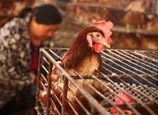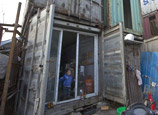
 |
| (file photo) |
Related:
>> Forever Shangri-la: China's heaven on earth
While it is no secret that major international hotel operators in China are all working hard to boost MICE (meetings, incentives, conferences and exhibitions) business, Shangri-La Hotels and Resorts could be one of the few that aims the highest.
"MICE is our bread and butter as one of the most important revenue segments in our hotels," said Cetin Sekercioglu, executive vice president of Shangri-La, who oversees approximately 18 properties across three brands - Shangri-La, Kerry and Traders - in Shanghai as well as south and east China.
"It is our mission to provide a level of service and experience that is unparalleled in China and it is in our nature to be the No. 1."
A 35-year hospitality veteran who has spent more than half of his career with Shangri-La Group, the Turkish national sees MICE business as the perfect opportunity to enhance the positioning of its brands in China, where its portfolio exceeds 38 operating hotels.
"China's overall MICE sector has been growing at an annual rate of 20 percent over the last 10 years and more than 4,000 conventions and exhibitions are now held around the country every year," said Sekercioglu, whose professional stints have covered 12 countries in Europe, the US and Asia.
"While there is still room for improvement in facilities, the major challenge, however, is more training and professional skills to handle guest and organizer needs."
With that in mind, Shangri-La has been implementing a staff training strategy to differentiate its products, services, people and image from other hotels.
"It is our goal to be recognized as the best hotel group in China for MICE and events, not some of the time, not most of the time, but at all times," he said.
One of the company's major attempts, according to Sekercioglu, is the introduction of a detail-focused training video covering 18 scenarios frequently seen during MICE handling procedures. From the initial customer inquiry to venue setup to post-event critique, the video helps provide clear guidance on what could be improved to enhance the overall experience of guests and organizers.
Emphasis on training aside, other key elements that make Shangri-La well placed to benefit from the country's potential to become a premier global MICE destination in the 21st century include its well-located properties, luxurious and large facilities, state-of-the-art technologies, dedicated teams as well as a long-established track record in offering high-quality catering that is essential to MICE activities.
The average spending on food and beverage by MICE customers almost doubles that of ordinary guests, Sekercioglu said.
Shangri-La's diversified international restaurants, expertise in Chinese cuisine and banqueting, as well as weddings, coupled with its focus on quality and food hygiene and sanitation have helped the company maintain its competitive edges, he said.
"We target both large groups and niche-market, small and medium, meetings for our future MICE business growth," said Sekercioglu. "Hopefully, revenue generated by MICE and events will account for 20 percent of our overall business this year."
First tapping the Chinese mainland market in 1984 in Hangzhou, the company plans to add another 16 to 20 hotels in eastern and southern China within the next five years.
















 Photo: Bird flu fears hits poultry industry
Photo: Bird flu fears hits poultry industry


![]()
